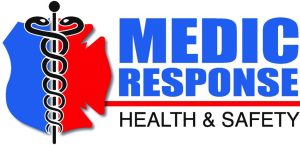 What is Basic Life Support?
What is Basic Life Support?
Basic Life Support (BLS) is a critical set of medical skills designed to assist individuals experiencing life-threatening emergencies such as cardiac arrest, respiratory distress, or airway obstruction. BLS focuses on maintaining adequate circulation, airway, and breathing until advanced medical personnel arrive. It is a cornerstone of emergency medical response and is essential for saving lives in critical situations.
Sign Up for BLS Training with Medic Response
What Does BLS Include?
BLS training equips individuals with the knowledge and skills to:
- Perform Cardiopulmonary Resuscitation (CPR): BLS emphasizes high-quality chest compressions and proper ventilation techniques to restore blood flow and oxygenation in cardiac arrest victims.
- Use an Automated External Defibrillator (AED): Trainees learn how to use an AED to deliver life-saving shocks to a person in cardiac arrest.
- Clear Airway Obstructions: BLS covers techniques to relieve choking in both adults and children, including abdominal thrusts and back blows.
- Work as a Team: In professional settings, BLS focuses on effective team dynamics to ensure coordinated care during emergencies.
Who Needs BLS Certification?
While BLS training is valuable for everyone, it is specifically tailored to individuals who may need to respond to emergencies as part of their professional responsibilities. Here are some groups who benefit most from BLS certification:
1. Healthcare Professionals
- Doctors, nurses, paramedics, and other healthcare providers are often required to maintain BLS certification as part of their job requirements. BLS ensures they can provide immediate care in clinical and non-clinical settings.
2. Emergency Responders
- Firefighters, police officers, and EMTs need BLS skills to respond effectively to emergencies in the field.
3. Teachers and Childcare Providers
- Educators, daycare workers, and babysitters benefit from BLS training to handle emergencies involving children and infants.
4. Lifeguards and Fitness Professionals
- Lifeguards, personal trainers, and coaches often work in environments where emergencies like cardiac arrest or drowning may occur.
5. Workplace Safety Teams
- Many companies require safety personnel or first aid teams to be BLS certified to handle workplace emergencies.
6. Anyone Interested in Saving Lives
- While not mandatory for everyone, BLS training is invaluable for anyone who wants to be prepared to act in emergencies, whether at home, in public, or at work.
Why is BLS Important?
BLS skills can mean the difference between life and death in critical situations. According to the American Heart Association, immediate CPR can double or even triple the chances of survival for someone in cardiac arrest. By maintaining proper circulation and breathing, BLS buys precious time until advanced medical help arrives.
How to Get Certified in BLS
BLS certification courses are widely available through organizations like the American Heart Association (AHA) and the Red Cross. These courses typically involve:
- Hands-on practice with manikins and AEDs.
- Interactive scenarios to build confidence and competence.
- Certification exams to ensure skill mastery.
Renewal is typically required every two years to keep skills up to date and aligned with the latest guidelines.
Conclusion
Basic Life Support is an essential skill set for anyone who wants to be prepared to respond effectively during a life-threatening emergency. Whether you’re a healthcare professional, a teacher, or simply someone who wants to make a difference, BLS training empowers you to take action when every second counts. Consider enrolling in a BLS course today and equip yourself with the knowledge to save a life.
If you are interested in taking a BLS Training class from Medic Response Health and Safety, please contact us.
If you’re interested in joining Medic Response as an instructor, please reach out—we’d be excited to discuss how you can become part of our growing team!
You can call us at 703-449-5438.